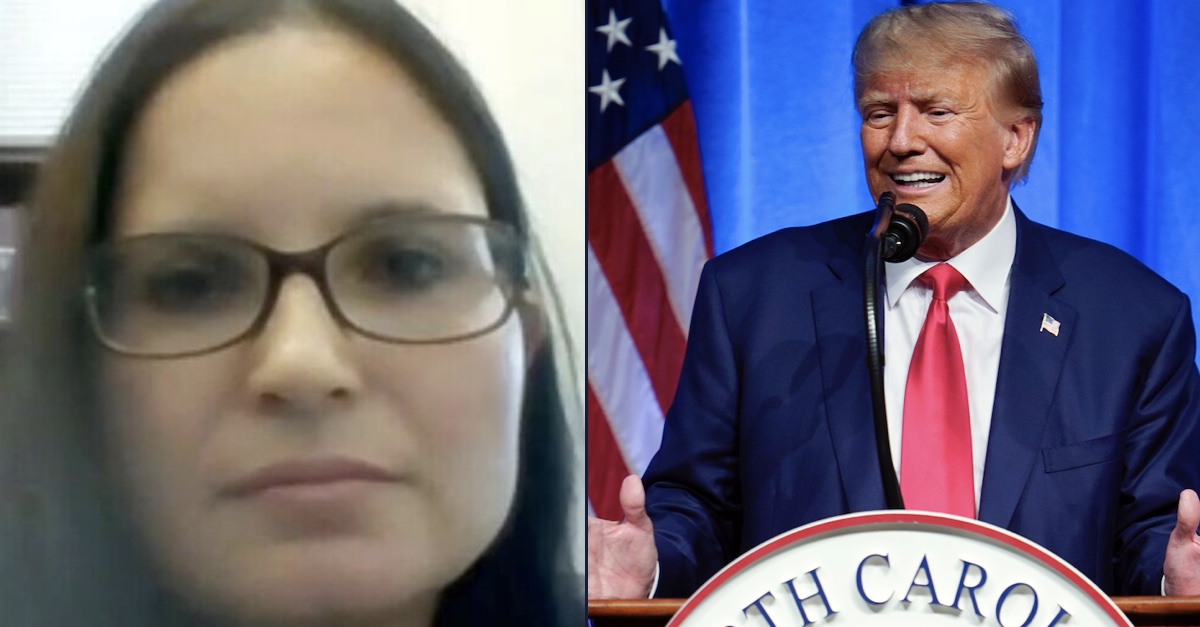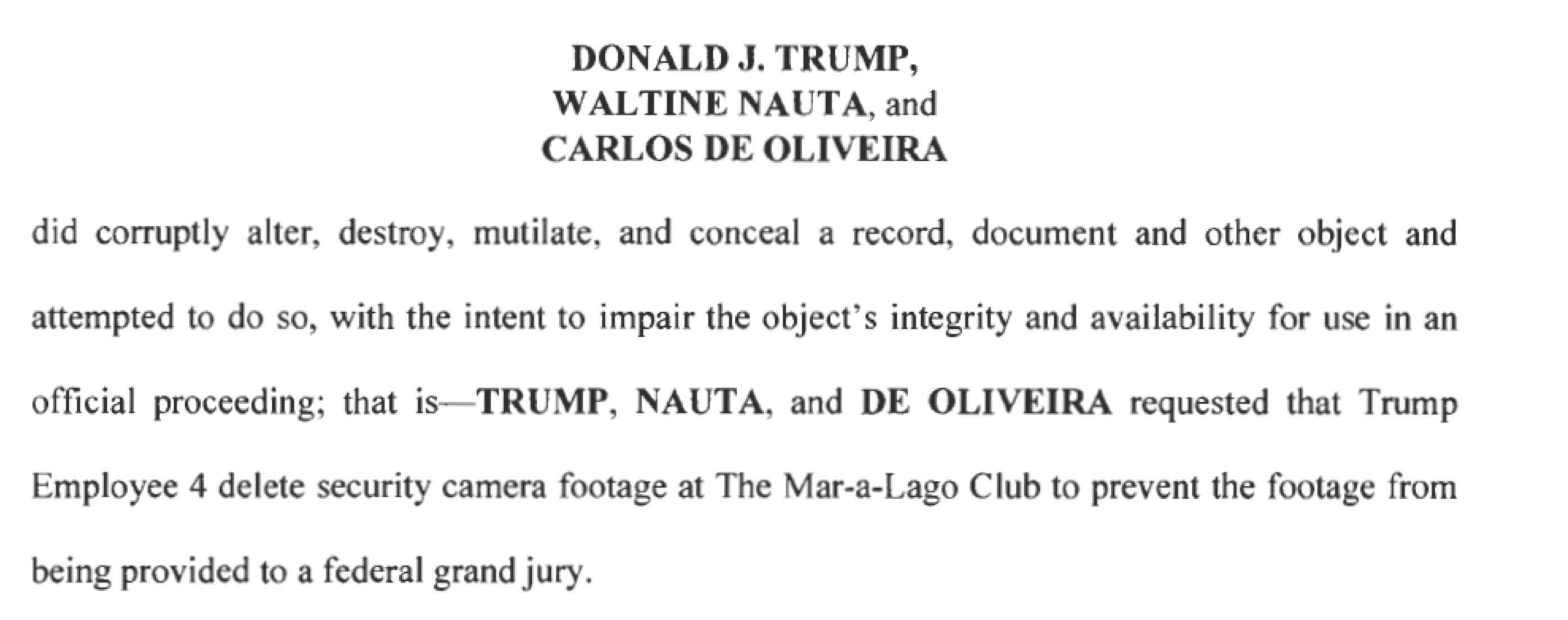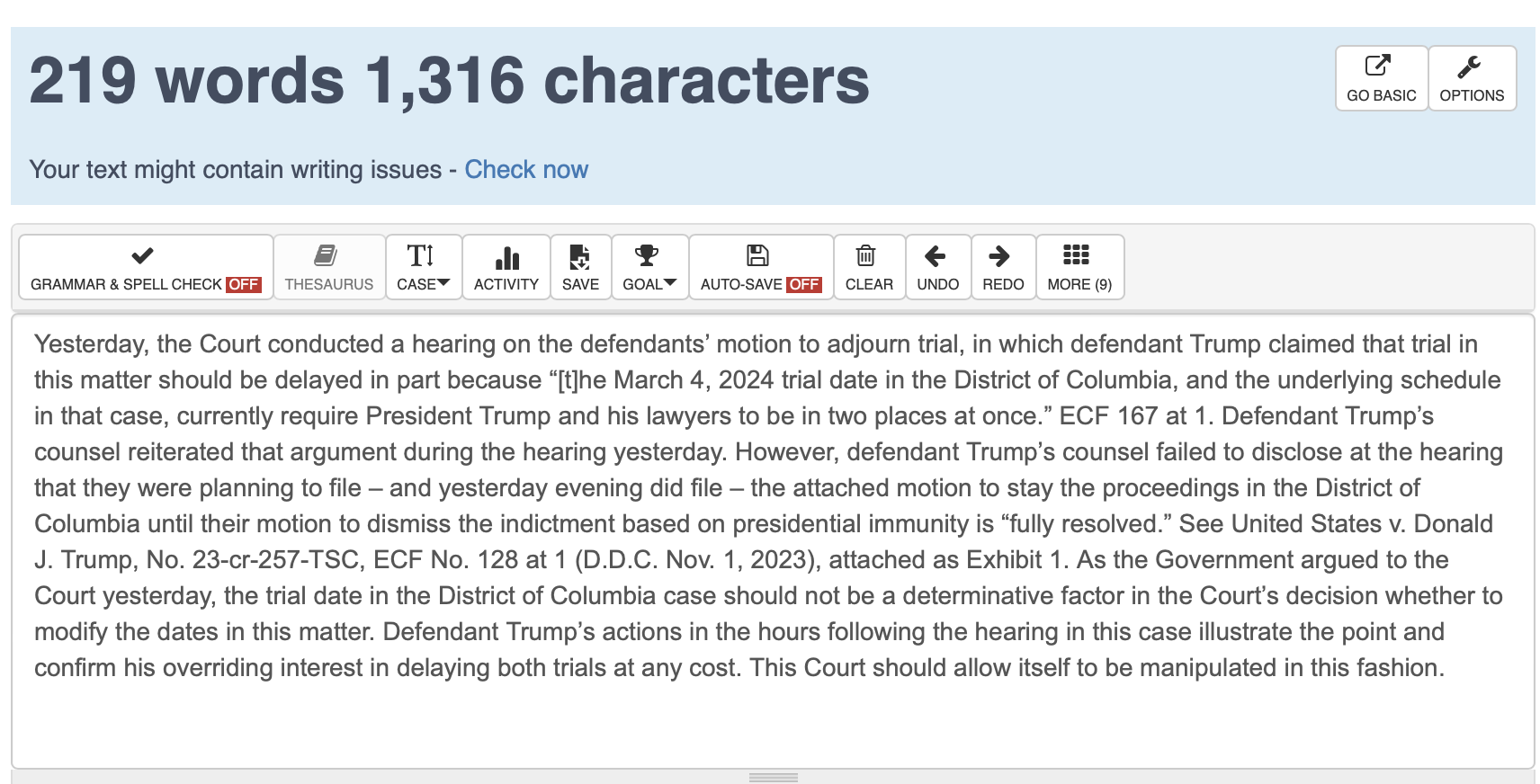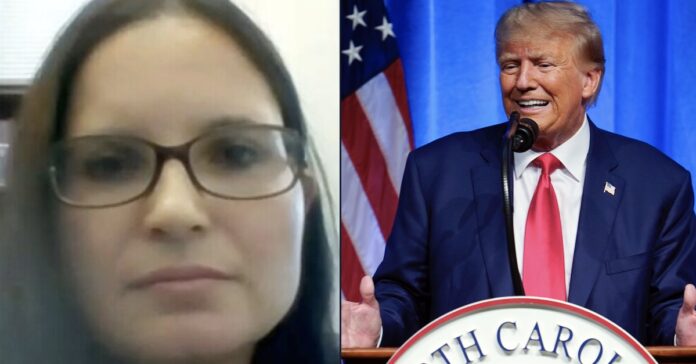
Judge Aileen Cannon (U.S. Senate Judiciary Committee), Donald Trump, (AP Photo/George Walker IV, File)
At the end of a messy week on the Mar-a-Lago docket, U.S. District Judge Aileen Cannon sided with Donald Trump by pausing pretrial deadlines that were the subject of legal wrangling in her courtroom Wednesday between the defense and the Special Counsel’s Office on issues as weighty as when the former president will stand trial in Florida.
“The Court heard argument from the parties on Defendants’ pending motions to continue,” Cannon said in a brief paperless minute entry on the docket, signaling that a subsequent order would provide more detail on how coming deadlines will be pushed back. “Pre-trial deadlines temporarily stayed pending order to follow.”
The judge, nominated by Trump and confirmed to serve as a lifetime appointee in November 2020, pointed to three specific filings that were submitted by Trump’s lawyers and joined by his co-defendants in the classified documents prosecution. Trump, his valet Walt Nauta, and Mar-a-Lago property manager Carlos De Oliveira were each named in a superseding indictment in July, alleging that the former president willfully retained national defense information in violation of the Espionage Act and that his co-defendants conspired to obstruct justice, even “corruptly” asking an employee to delete Mar-a-Lago camera footage to hide it from a federal grand jury.

The Trump motions Cannon referred to date back to September, early October, and mid-October. In July, Judge Cannon set a preliminary trial date for May 2024, but in the ensuing months, Trump’s legal team pushed for that date to be moved past the 2024 election. They also asserted that special counsel Jack Smith’s “unreasonable schedule” for “discovery litigation” and lawyering pursuant to § 4 of the Classified Information Procedures Act or CIPA was complicated by “ongoing discovery failures by the Special Counsel’s Office.”
Smith called those claims “distorted and exaggerated,” and he opposed an “indefinite extension” of an Oct. 20 deadline to compel discovery. At the same time, the special counsel did not oppose a 10-day extension.
In the early morning hours on Thursday, the day after Cannon repeatedly slammed Smith on the issue of classified discovery (while repeatedly making a noticeable error of her own), the special counsel submitted and prosecutor Jay I. Bratt signed a filing alerting the judge to the Trump team’s motion in the Washington, D.C., Jan. 6 prosecution, a motion which sought a stay of “all proceedings” until the former president’s renewed “presidential immunity” claims are resolved.
The Special Counsel’s Office (SCO) attached the motion to an exhibit and filed it with a notice in Cannon’s court, saying that Trump’s lawyers made no mention at a Wednesday hearing before her that they planned to file the motion to stay.
“Defendant Trump’s counsel reiterated that argument during the hearing yesterday. However, defendant Trump’s counsel failed to disclose at the hearing that they were planning to file – and yesterday evening did file – the attached motion to stay the proceedings in the District of Columbia until their motion to dismiss the indictment based on presidential immunity is ‘fully resolved,”” the special counsel’s notice said, arguing that the motion for the stay “should not be a determinative factor in the Court’s decision whether to modify the dates” in the Mar-a-Lago case.
Smith and his team said the Trump motion was just more evidence that the defense will only continue its delay tactics in both federal cases — and “at any cost.”
Unfortunately for the SCO, the last line of the notice erroneously urged the judge to do the very opposite of what they asked for: “This Court should allow itself to be manipulated in this fashion.” Even more unfortunately, the filing led to a warning from Judge Cannon.
Cannon issued a paperless order torpedoing the SCO for filing a notice of supplemental authority that was too wordy, in violation of Local Rule 7.8.
The judge said that if it happens again, she’ll strike such filings and toss them in PACER’s abyss.
“The parties are hereby reminded of the requirements of Local Rule 7.8 on Notices of Supplemental Authority. Except as authorized by Court order, the substantive content of any such notice (or response) may not exceed 200 words and may not be used as a surreply absent leave of Court,” the judge wrote. “Future non-compliant notices or unauthorized filings will be stricken without further notice.”
The local rule in question specifies that “[i]f one or more pertinent and significant authorities come to a party’s attention after the party’s motion or memorandum of law has been filed or after oral argument but before a decision has been rendered, a party may promptly file a notice of supplemental authority,” but the body of the text in the notice — which must also include citations — can’t exceed 200 words.
This is what we’re dealing with here:

In a separate filing Thursday that did not seem to anger Cannon, as it was not a notice, Smith and Bratt offered up a supplemental response to the standing discovery order that was issued by a magistrate judge on June 13.
The SCO began with a noticeable typo — “the Standard Discovery Order” — before providing an update on the status of unclassified and classified discovery produced to Trump, Nauta, and De Oliveira (references to numbered docket entries removed for ease of reading):
Per the protective order issued in this case, the Government has provided seven productions of unclassified discovery to Defendants Donald J. Trump, Waltine Nauta, and Carlos De Oliveira. Per the CIPA Section 3 protective orders issued in this case, the Government has provided four prior productions of classified discovery. On October 31, 2023, the Government provided a fifth production of classified discovery to counsel for Defendants (“Classified Production 5”). Classified Production 5 consists of two items: classified memorialization associated with a witness interview conducted on October 6, 2023, including the transcript and audio recording of the interview; and a three-page document produced in response to Defendant Trump’s October 19, 2023 classified discovery letter.
Prosecutors, reiterating their awareness of “continuing duty to disclose newly discovered additional information and the “obligation to assure a fair trial,” provided clarity on its response to the “specific items identified” in the aforementioned standing discovery order:
B. DEMAND FOR RECIPROCAL DISCOVERY: The United States requests the disclosure and production of those items described and listed in paragraph B of the Standing Discovery Order, and as provided by Federal Rule of Criminal Procedure 16(b).
C. The Government is providing information or material known to the United States that may be favorable to either defendant on the issues of guilt or punishment within the scope of Brady v. Maryland, 373 U.S. 83 (1963), or United States v. Agurs, 427 U.S. 97 (1976).
D. The Government has disclosed and will continue to disclose any payments, promises of immunity, leniency, preferential treatment, or other inducements made to prospective Government witnesses, within the scope of Giglio v. United States, 405 U.S. 150 (1972), or Napue v. Illinois, 360 U.S. 264 (1959).
J. The Government’s discovery productions include the grand jury testimony and recordings of witnesses who may testify for the Government at the trial of this case.
Have a tip we should know? [email protected]

